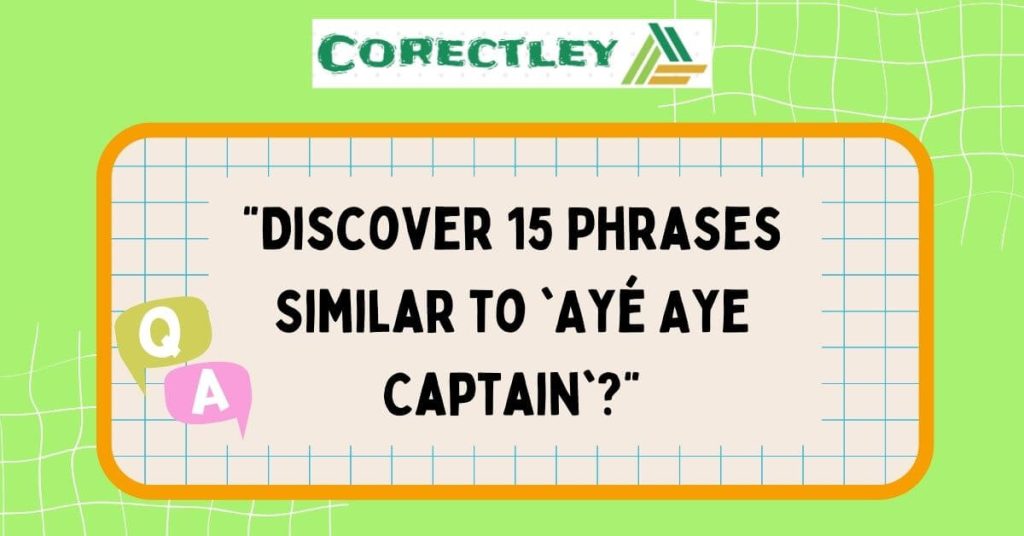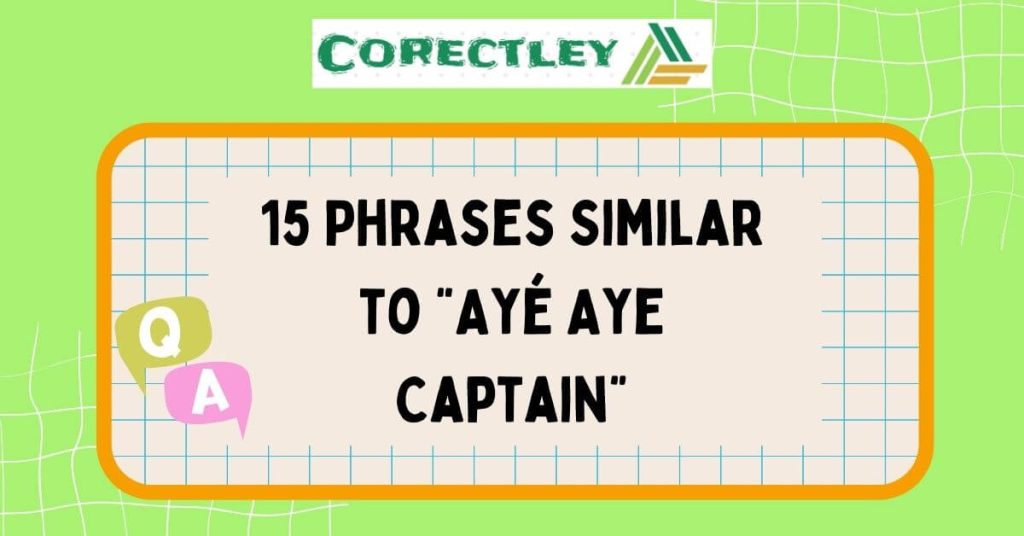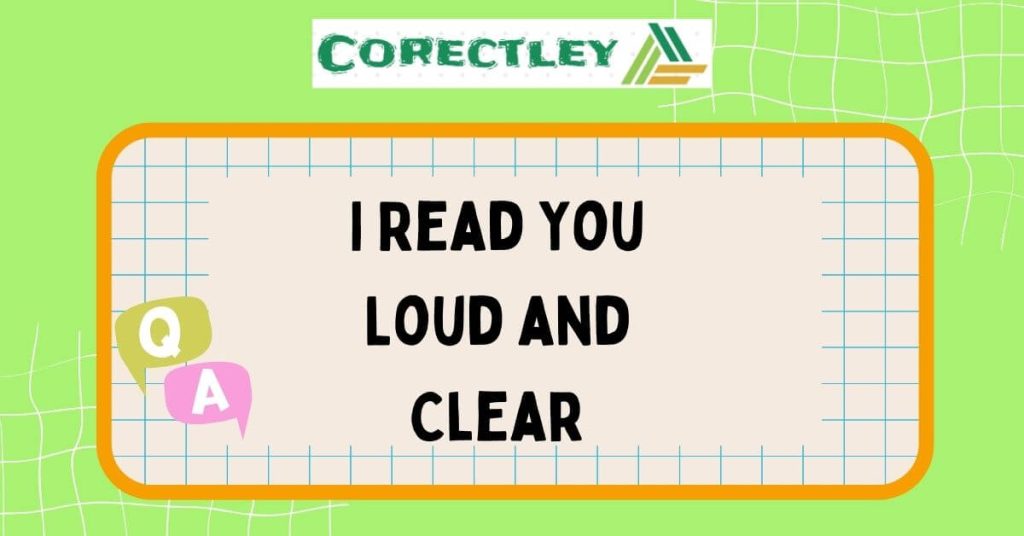You could have utilized this saying, “ayé aye, captain” playfully with your companions when they request that you follow through with something. In any case, do you know the genuine importance of this expression, or you’re trying to say what others say?
Do you additionally realize different articulations can mean exactly the same thing as well?

“ayé aye, captain” is an outdated articulation, and in this article, I’ll examine 15 expressions like ayé yes skipper. To start with, notwithstanding, you’ll know the significance of this expression.
Meaning of “Ayé Aye Captain”
Ayé aye captain is an expression people use while answering an order they expect to comply with. This outdated articulation can likewise be utilized wryly or energetically with companions or when you don’t mean to do as requested.
“Ayé aye, captain” basically means, “Yes, yes, captain.” It has been involved by the military or mariners because of a request from the captain or a powerful person.
Nowadays, people use it casually because of a request or solicitation from somebody. Likewise, you can utilize this expression snidely when you expect to make a joke at the person making the solicitation.
15 Phrases Similar to “Ayé Aye Captain”

There are incalculable articulations like ayé yes, chief. Any articulation that demonstrates insistence of a solicitation or request, can supplant this expression.
Some of the phrases similar to “aye aye captain” include: “All alright, sir,” “copy that,” “okay, boss” and many more. That being said, here are 15 expressions like, “ayé aye, captain.
1. Yes, Sir
As previously laid out, “aye” essentially signifies “yes.” ” yes” is the cutting-edge and formal word for “affirmative.” Thus, this expression implies exactly the same thing as, “ayé aye, captain.”
“Indeed” is a word that shows your endorsement and comprehension of an assertion. It shows assent. Assuming that you’re having a discussion with somebody, you can say “yes” to show your comprehension or that you’re following.
In this way, “Yes, sir” is a conventional articulation you use with a powerful person because of a solicitation they make or a request they give.
Assuming that you acknowledge to concede the solicitation or take care of the request, you utilize this articulation to consent to it.
It’s exceptionally proper in the work environment or a conventional setting. What’s more, you can likewise utilize this casually and energetically with your companions when they provide you with a request.
2. Alright, Sir
“Alright, sir” is another articulation like “ayé aye, captain.” It’s an expression you likewise use to affirm what you’ve heard or to show how you might interpret what you’ve heard.
Likewise, while answering a request, you can utilize this articulation when you consent to the order. It’s a conventional articulation, however, you can constantly utilize it casually.
3. Understood, Sir
“Understood, sir” likewise works like the above expressions to communicate how you might interpret a topic. It’s an immediate approach to saying you receive the message being passed to you.
Likewise, assuming you mean to complete the message, this expression affirms it. This is a proper approach to answering your managers or somebody more seasoned or in a more significant position. Yet, you can utilize it flippantly or energetically with companions.
4. Okay, Boss
“Okay” is a word you use to show endorsement and fulfillment and to communicate understanding. Additionally, you can utilize this word to show that you’re healthy.
For example, when somebody asks how you are fairing, you can say, “Okay” to tell them you’re fine.
Nonetheless, for this situation, very much like, “ayé yes, skipper,” when you say, “Okay, boss” to a solicitation or request, it affirms your goal to complete the undertaking.
“Boss” here doesn’t be guaranteed to mean your worker. You can utilize this term with a person of a more significant position, with an outsider, or even with your companions when you agree to their solicitation.
Furthermore, you can be wry with this articulation, particularly with your bossy friends.
5. Copy That
“Copy that” is an articulation that says, “I heard and fathomed the message.” This is a generally involved articulation in the power while conveying by means of radio transmission to affirm the receipt of the transmission.
Be that as it may, it’s anything but an authority military or power term. Along these lines, this expression additionally works like “ayé aye, captain” to communicate how you might interpret what’s being shared with you.
It’s a casual articulation, so you ought to restrict its utilization to a casual or semi-formal setting. Notwithstanding, contingent upon your relationship with your chief, you can utilize this articulation with them to communicate your comprehension.
6. I Hear You
“I hear you” is another expression like, “aye aye, captain.” It’s a casual approach to saying you’ve received the message that is being passed to you.
Likewise, this is an interesting approach to telling somebody that you comprehend everything they’re saying to you, particularly for somebody rehashing the directions.
You can utilize the articulation to inspire them to come by expressing something like, “I hear you, could we at any point change the subject presently, please?”
Furthermore, you can utilize this articulation wryly with somebody you don’t plan to follow their request.
7. Roger That
“Roger that” signifies exactly the same thing as “duplicate that.” It’s another expression like, “ayé aye, captain,” that you can use to tell somebody you’ve gotten the data they passed.
This is a typical statement with the military or persons in power, very much like “copy that.” A type of correspondence tells your partner or predominant that you’ve gotten the sign sent or you’ve received their message obviously.
Moreover, it’s a casual articulation to use with companions and associates. In any case, with your boss, it’ll rely upon the relationship you share.
8. Acknowledged, Sir
“Acknowledged” is an articulation that basically signifies, “accepted.” At the point when your manager passes data to you or gives a task, utilizing this articulation tells him you figured out the message.
Additionally, it lets him know that you expect to do the directions. It’s an expression that’d work in a formal or expert setting. Be that as it may, you can continuously utilize it with companions.
In this way, it’s a cool articulation that you can use rather than “ayé aye, captain.”
9. No Worries
This is one more approach to communicating how you might interpret a message. It works like “ayé aye, captain” to let the person providing the order realize that you’ll complete it.
At the point when somebody requests that you work on something for themselves and you say “no worries,” this expression can likewise tell them it’s something you can deal with.
While it’s a good idea to say it communicates how you might interpret guidance, you can likewise utilize this expression to guarantee the person of your capacity. Additionally, you can utilize articulation to console somebody stressed.
10. Grab That
“Grab that” additionally works like “ayé aye, captain” to tell somebody that you comprehend everything they say to you.
It’s an articulation you can use in a relaxed setting. At the point when somebody requests that you work on something for them, this articulation doesn’t just show your comprehension, it shows your availability to make it happen.
For example:
A: Could you at any point get Damian from school on your way from the shopping center?
B: Grab that. When does he close?
11. I Read You Loud and Clear

This is another articulation like “ayé aye, captain.” A colloquial articulation is utilized in the power or where they convey through radio or phone.
This expression will tell the person at the opposite end you can hear and comprehend them obviously.
Likewise, it’s an articulation you can use in a work or relaxed setting to impart your cognizance of the message passed to you.
12. Very Well
“Very well” is one more clear explanation that tells how you might interpret a message.
A flexible articulation can work in both a formal or casual setting to tell the other person you mean to do as is commonly said.
You can utilize this articulation with companions’ or alternately associates’ names or with a charm. For a person of a more significant position, you can add “sir” as fitting.
13. Okey dokey
“Okey dokey” is another expression you can use rather than “ayé affirmative, commander.” This articulation is the variation for “okay,” beginning far, harking back to the twentieth 100 years.
At the point when you utilize this expression, it lets the person know that you figure out their message, or you expect to do guidance given to you. It’s a shoptalk word that shouldn’t advance toward an expert or workplace.
14. Certainly, boss
This is a cool approach to communicating your comprehension and consent to guidance.
At the point when somebody requests that you follow through with something, and you utilize this expression, it guarantees them you’ll do the task given.
“Certainly” gives a confirmation that you plainly comprehended the assignment given to you or the message passed.
For instance:
A: Might you at any point finish this by 12 p.m.?”
B: unquestionably, chief.
Thus, this articulation gives you 100 percent assurance to the person that you’ll complete the assignment given.
15. Sure, Sir
“Sure, sir” is one more articulation to utilize when somebody provides you with an order.
It’s generally utilized with persons in power to consent to the guidance they provide for you.
Notwithstanding, you can utilize this articulation energetically to prod your bossy companion. Additionally, you can utilize it mockingly with somebody you don’t plan to pay attention to.
End Note
In this way, there are various expressions like “ayé aye, captain” you can use to communicate a comprehension of a message given to you.
And furthermore to certify that you’ll complete the guidance. These above models are articulations you can use in a formal and casual setting.
In this way, you ought to pick the expression that accommodates your setting and you can continuously add yours.